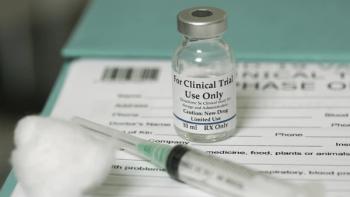
LambdaVision announces first closing of seed round for preclinical artificial retina trials
The biotechnology company is developing the first protein-based artificial retina for patients with retinitis pigmentosa and age-related macular degeneration.
Biotechnology company LambdaVision has secured new partners in the funding of its artificial retina development, including Korean pharmaceutical company Boryung and E2MC Ventures. LambdaVision announced the first closing of its seed round, led by Aurelia Foundry Fund of MIT, according to a news release. The target raise is intended to fund the company’s GMP manufacturing scale up and critical IND-enabling efficacy and toxicity studies to advance to company closer to begin clinical trials for blind patients with advanced retinitis pigmentosa (RP).1
“This support from the Aurelia Foundry Fund and other high-profile investors underscores the potential of our approach toward treating retinal degenerative diseases and further validates our innovative space-based manufacturing approach to benefit those on Earth,” said Nicole Wagner, PhD, CEO of LambdaVision, in the release. “We are grateful for the support of our new partners and hope to welcome additional institutions or qualified investors to fill the seed round.”
LambdaVision is currently developing what would be the first protein-based artificial retina to restore vision for those who are blind or have experienced significant vision loss due to RP and age-related macular degeneration (AMD). The company’s goal is to assemble the artificial retina in low-Earth orbit, while preclinical studies have been conducted on Earth. Microgravity is believed to improved production efficiency and product quality due to the solutions used and thin films that make up the layers of the artificial retina.1
“We are proud to lead this seed round with LambdaVision and eager to support bringing a life-changing product to market,” said Ariel Ekblaw, GP, Aurelia Foundry Fund. “Funding their paradigm-shifting artificial retina technology aligns with our mission to invest in foundational space tech that can empower humanity and offers the space industry a scalable solution for in-space bio manufacturing that leverages microgravity.”
The retina is developed through a layer-by-layer production process, with these layers alternating protein (similar to the visual pigment rhodopsin that occurs naturally in the eye), bacteriorhodopsin, and a polymer. The layers are supported by a membrane of a synthetic fiber, with the protein mimicking the light-absorbing properties of photoreceptors in the eye.1
“Recognizing the huge unmet need for RP patients for whom there is currently no cure, it is imperative we support the research and development of new technologies like LambdaVision’s artificial retina that will hopefully help patients regain sight,” said Luciano V. Del Priore, MD, PhD, Robert R. Young Professor of Ophthalmology and Visual Science, chair of Ophthalmology at Yale School of Medicine, and chief of ophthalmology at Yale New Haven Hospital, in the release.
Additionally, the company has also received a Notice of Allowance from the US Patent and Trademark Office for a worldwide patent application. This included a definition of the production process and function features of the artificial retina technology.1
In total, LambdaVision has secured over $17 million in funding and launched 9 missions to the International Space Station.1
Reference:
LambdaVision announces first closing of seed round to advance artificial retina preclinical studies for retinal eye diseases. News release. LambdaVision. May 29, 2024. Accessed Juned 3, 2024.
https://www.lambdavision.com/lambdavision-announces-first-closing-of-seed-round-to-advance-artificial-retina-preclinical-studies-for-retinal-eye-diseases/
Newsletter
Want more insights like this? Subscribe to Optometry Times and get clinical pearls and practice tips delivered straight to your inbox.













































.png)


